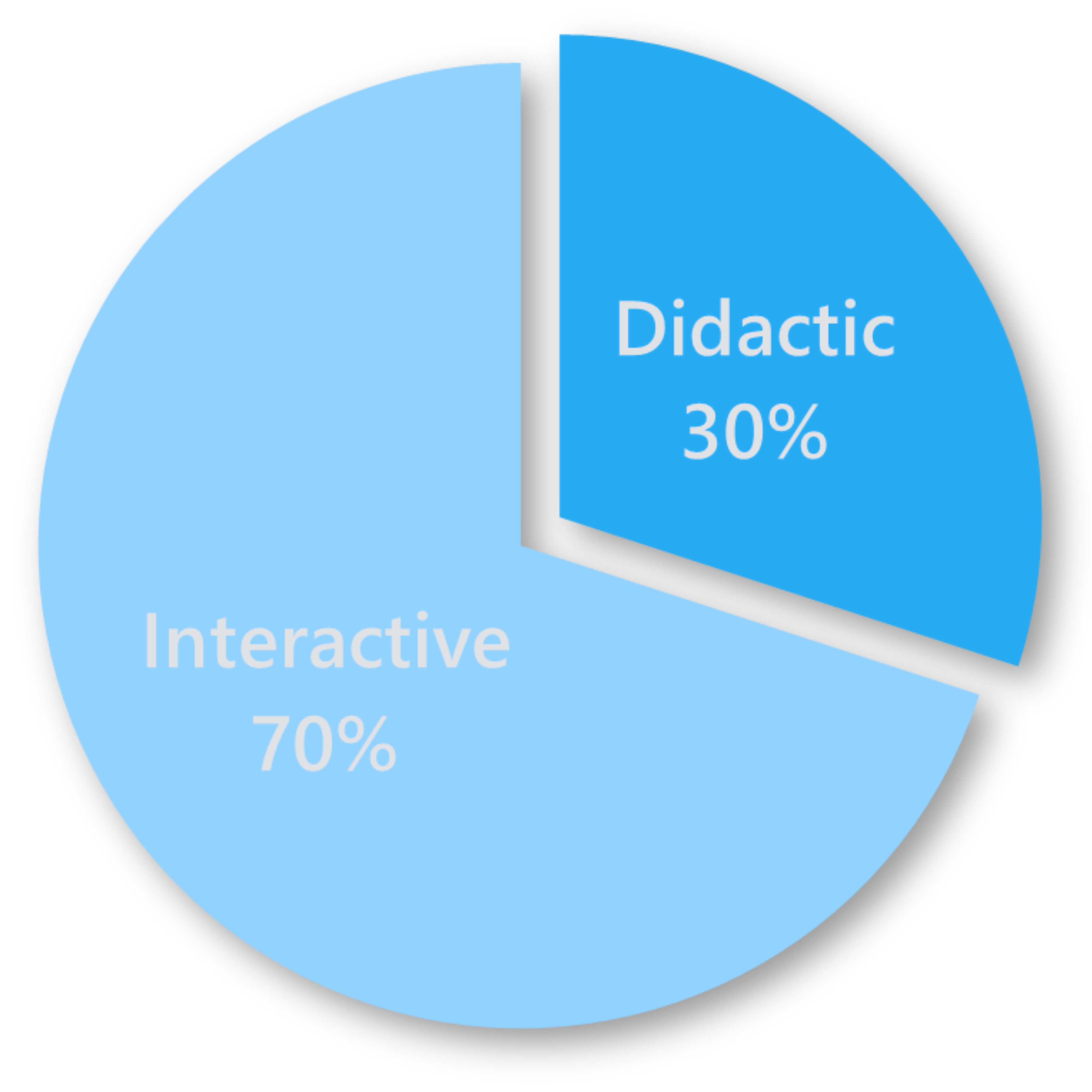
Ncharge® - Charge Nurse Leadership Program - Nurses Learning to Lead
Instructor Led Classroom Virtual

Instructor Led Classroom Virtual
NCharge is a nursing leadership skills curriculum designed uniquely for first-level supervisory nurses on the unit. For nursing teams to thrive, they need strong leadership that can manage the complex day-to-day challenges in every healthcare setting. It takes more than being a strong clinician, it requires people skills that match.
Request InfoHealth systems are grappling with skyrocketing costs from ongoing turnover, reaching a historical high. According to the 2024 NSI report, the average RN turnover now costs a staggering $56k per nurse. Studies show that employees vacate their position due to poor leadership from their immediate supervisor. Investing in developing charge nurses increases staff RN retention and reduces overall cost of turnover.
Often, staff nurses are moved to the charge role without any formal leadership training, leaving them feeling unsure in their new role. With nurses moving to the charge role earlier in their career than ever before, they require leadership skill building to become well-equipped, confident leaders.
With a workforce as diverse as today's, communication breakdowns and conflicts often disrupt operations. Frontline nurse leaders bear the brunt, needing advanced communication skills to tackle these challenges head-on. Strong leadership skills are vital for managing a cohesive unit, keeping morale high among all team members.


NCharge courses are designed to address the everyday challenges that charge nurses face on the hospital unit. These courses focus on essential nursing leadership and business skills, empowering charge nurses to become vital contributors to your organization's success.
NCharge courses have been approved by the South Carolina Nurses Association, an accredited approver by the American Nurses Credentialing Center's (ANCC) Commission on Accreditation. 3.5-4 contact hours awarded per course.
NCharge courses offer a variety of interactive activities, helping learners not only absorb the content but also learn from each other. Nurses engage in role-plays, real-world scenario discussions, video vignettes, and more.

Increase employee retention, morale, and quality of service through professional development.

NCharge courses are instructor-led and cohort-based. Choose the option that best fits your unique situation.

“I learned to research facts more and base opinions decisions on those – not opinions.”
– NCharge participant
“The leadership stories of other effective leaders were very helpful and inspiring.”
– NCharge participant
A charge nurse is a registered nurse (RN) who holds a leadership position within a healthcare facility, overseeing a specific unit or department. They are responsible for coordinating patient care, managing staff assignments, and ensuring the smooth operation of daily activities.
A charge nurse takes on various responsibilities, including: Assigning tasks and patient care responsibilities to nursing staff. Supervising nursing staff and providing guidance and support as needed. Coordinating patient admissions, discharges, and transfers. Collaborating with other healthcare professionals to ensure optimal patient outcomes. Handling administrative tasks such as scheduling, documentation, and inventory management. Serving as a liaison between nursing staff, patients, families, and other healthcare team members.
To become a charge nurse, individuals typically need to follow these steps: Earn a Bachelor of Science in Nursing (BSN) degree from an accredited nursing program. Obtain a registered nurse (RN) license by passing the NCLEX-RN exam. Gain clinical experience working as a staff nurse in a healthcare setting, typically for a minimum of two to three years. Pursue additional education or certification in nursing leadership or management, such as a Master of Science in Nursing (MSN) degree or certification as a Nurse Executive. Demonstrate strong leadership skills, clinical expertise, and the ability to effectively manage and coordinate patient care. Apply for charge nurse positions within healthcare facilities and undergo any required training or orientation programs upon selection.
Having competent and effective charge nurses is essential for the smooth operation of healthcare facilities. Charge nurses contribute to the efficient management of patient flow, staffing resources, and clinical processes, ultimately improving overall patient care outcomes. Their leadership and oversight help ensure compliance with regulatory requirements and promote a culture of safety and quality within the organization.
© 2024 Catalyst Learning Company | Privacy Statement | Terms Of Use